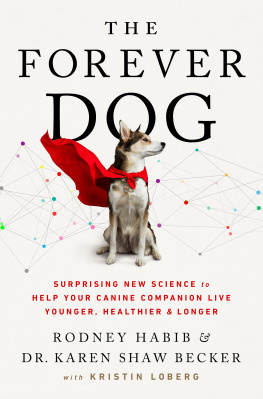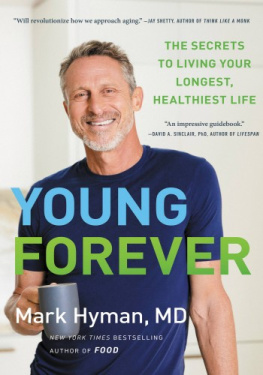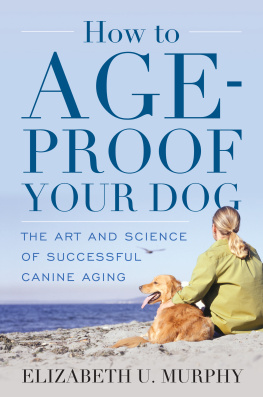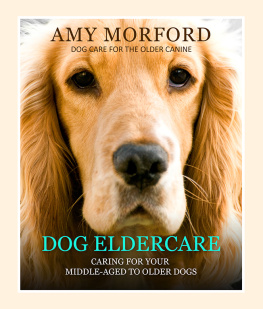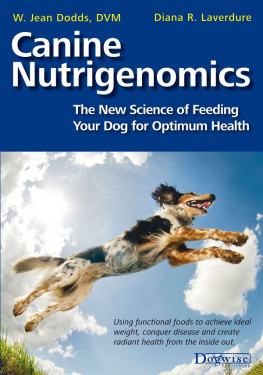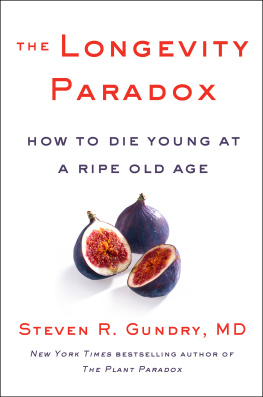Rodney Habib - The Forever Dog: Surprising New Science to Help Your Canine Companion Live Younger, Healthier, and Longer
Here you can read online Rodney Habib - The Forever Dog: Surprising New Science to Help Your Canine Companion Live Younger, Healthier, and Longer full text of the book (entire story) in english for free. Download pdf and epub, get meaning, cover and reviews about this ebook. year: 2021, publisher: Harper Wave, genre: Home and family. Description of the work, (preface) as well as reviews are available. Best literature library LitArk.com created for fans of good reading and offers a wide selection of genres:
Romance novel
Science fiction
Adventure
Detective
Science
History
Home and family
Prose
Art
Politics
Computer
Non-fiction
Religion
Business
Children
Humor
Choose a favorite category and find really read worthwhile books. Enjoy immersion in the world of imagination, feel the emotions of the characters or learn something new for yourself, make an fascinating discovery.
- Book:The Forever Dog: Surprising New Science to Help Your Canine Companion Live Younger, Healthier, and Longer
- Author:
- Publisher:Harper Wave
- Genre:
- Year:2021
- Rating:3 / 5
- Favourites:Add to favourites
- Your mark:
The Forever Dog: Surprising New Science to Help Your Canine Companion Live Younger, Healthier, and Longer: summary, description and annotation
We offer to read an annotation, description, summary or preface (depends on what the author of the book "The Forever Dog: Surprising New Science to Help Your Canine Companion Live Younger, Healthier, and Longer" wrote himself). If you haven't found the necessary information about the book — write in the comments, we will try to find it.
#1 New York Times Bestseller
In this pathbreaking guide, two of the worlds most popular and trusted pet care advocates reveal new science to teach us how to delay aging and provide a long, happy, healthy life for our canine companions.
Like their human counterparts, dogs have been getting sicker and dying prematurely over the past few decades. Why? Scientists are beginning to understand that the chronic diseases afflicting humans--cancer, obesity, diabetes, organ degeneration, and autoimmune disorders--also beset canines. As a result, our beloved companions are vexed with preventable health problems throughout much of their lives and suffer shorter life spans. Because our pets cant make health and lifestyle decisions for themselves, its up to pet parents to make smart, science-backed choices for lasting vitality and health.
The Forever Dog gives us the practical, proven tools to protect our loyal four-legged companions. Rodney Habib and Karen Becker, DVM, globetrotted (pre-pandemic) to galvanize the best wisdom from top geneticists, microbiologists, and longevity researchers; they also interviewed people whose dogs have lived into their 20s and even 30s. The result is this unprecedented and comprehensive guide, filled with surprising information, invaluable advice, and inspiring stories about dogs and the people who love them.
The Forever Dog prescriptive plan focuses on diet and nutrition, movement, environmental exposures, and stress reduction, and can be tailored to the genetic predisposition of particular breeds or mixes. The authors discuss various types of food--including what the commercial manufacturers dont want us to know--and offer recipes, easy solutions, and tips for making sure our dogs obtain the nutrients they need. Habib and Dr. Becker also explore how external factors we often dont think about can greatly affect a dogs overall health and wellbeing, from everyday insults to the body and its physiology, to the role our own lifestyles and our vets choices play. Indeed, the health equation works both ways and can travel up the leash.
Medical breakthroughs have expanded our choices for canine health--if you know what they are. This definitive dog-care guide empowers us with the knowledge we need to make wise choices, and to keep our dogs healthy and happy for years to come.
Rodney Habib: author's other books
Who wrote The Forever Dog: Surprising New Science to Help Your Canine Companion Live Younger, Healthier, and Longer? Find out the surname, the name of the author of the book and a list of all author's works by series.

